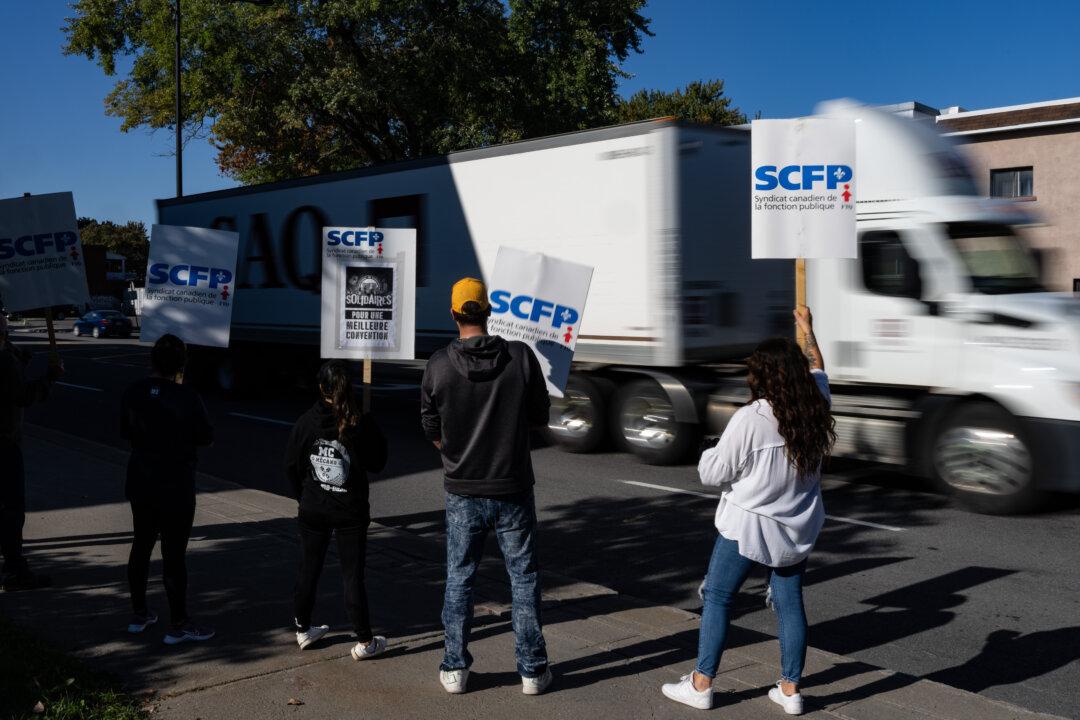Dockworkers at the Port of Montreal started a new strike Thursday morning, forcing the indefinite shutdown of two container terminals at the country’s second biggest port.
The Port of Montreal says the Viau and Maisonneuve terminals are closed until further notice, paralyzing 40 percent of the port’s total container-handling capacity. The union representing nearly 1,200 longshore workers began its latest strike at 11 a.m., affecting the two terminals operated by the company Termont. The latest strike involves up to 320 workers.





